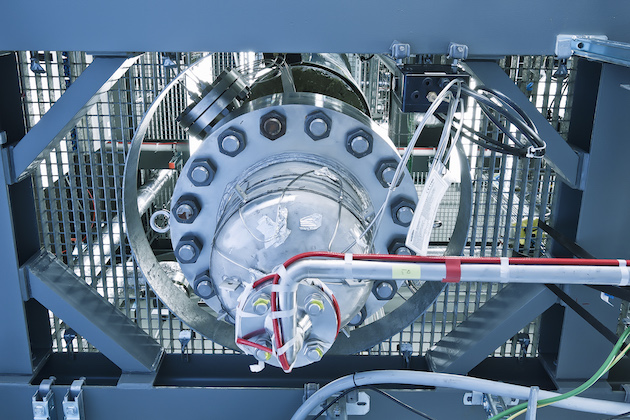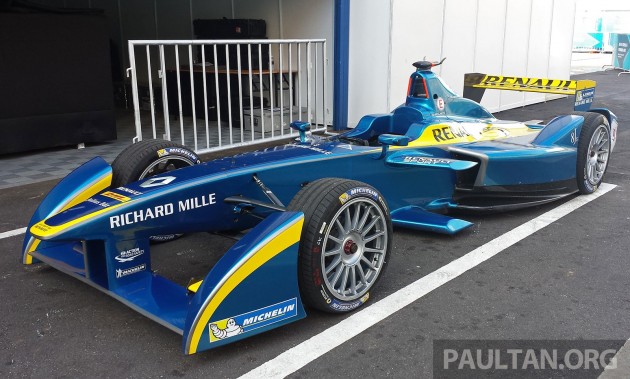
Even with the amount of electric vehicles we've seen lately, it's likely going to be a long time until they completely replace traditional combustion engines on the road. So how are we going to get away from pricey fossil fuels until then? Well, water could be a possibility. German company Sunfire GmbH thinks it has the solution for turning H20 and carbon dioxide into liquid hyrdrocarbons like synthetic diesel, kerosene and petrol, according to CNET.
It does this in part by using a combination of the Fischer-Tropsch process (a chemical reaction that performs the aforementioned transformation) and solid electrolyzer cells (fuel cells that produce gas forms of hydrogen and oxygen).
Sunfire says current systems run nearly 50 percent efficient, but there's potential to increase that to around 70 percent in the future. For comparison's sake, that current value is akin to a modern diesel engine, while gasoline motors only hit a paltry 14-to-30 percent efficiency rating. What's holding it back?
The usual bureaucratic red tape. Sunfire says it needs regulatory factors to fall in a way which will give investors a "sufficient level of planning reliability" before it can move forward. So maybe don't get your hopes up toohigh just yet.
- Source: Engadget





















